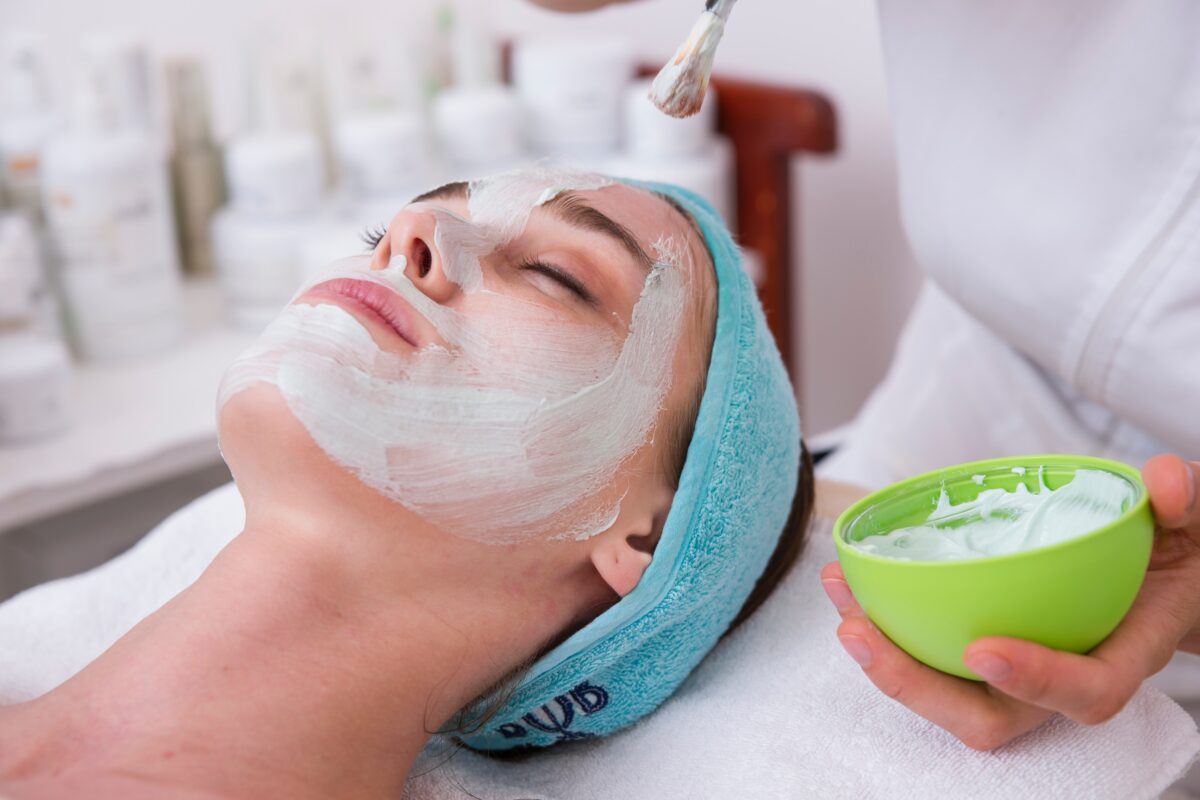The best skin care routine for sensitive skin requires a gentle and minimalistic approach to avoid irritation and redness.
Best Skin care Routine for Sensitive Skin | QNET |
Here’s a basic skin care routine for sensitive skin that you can follow. Remember that individual sensitivities can vary, so it’s essential to patch-test new products and consult a dermatologist for personalised advice.
Cleansing:
- Use a gentle, fragrance-free, and sulfate-free cleanser. Look for cleansers labelled as “hypoallergenic” or “for sensitive skin.”
- Cleanse your face twice daily, in the morning and before bedtime.
Toning:
- If you use a toner, opt for an alcohol-free, hydrating toner that soothes the skin rather than one with astringent properties.
Moisturising:
- Choose a fragrance-free, hypoallergenic moisturizer specifically formulated for sensitive skin.
- Apply your moisturiser immediately after cleansing to lock in moisture.
Sunscreen:
- Daily sun protection is crucial for sensitive skin. Use a broad-spectrum, SPF 30 or higher sunscreen.
- Look for a sunscreen designed for sensitive skin, typically labelled as “gentle” or “for sensitive skin.”
- If possible, try to apply sunscreen every two hours when outdoors.
Avoid Harsh Ingredients:
- Check product labels and avoid skincare products with alcohol, fragrances, dyes, and harsh chemicals like retinoids and alpha hydroxy acids (AHAs).
Patch Testing:
- Before introducing new products into your routine, patch-test them on a small area of your skin to ensure they don’t irritate.

Minimalism:
- Keep your skincare routine simple. Fewer products mean fewer potential irritants. You may not need a toner or multiple serums.
Hydration:
- Drink excess water to keep your skin hydrated from the inside out.
Cool Water:
- Use lukewarm or cool water when cleansing, and avoid hot water, which can strip your skin of natural oils and exacerbate sensitivity.
Gentle Exfoliation:
- Choose a mild exfoliant with ingredients like lactic acid or PHA (polyhydroxy acids) to exfoliate.
- Limit exfoliation to once a week or less, depending on your skin’s tolerance.
Consult a Dermatologist:
- If you’re struggling with persistent skin issues or want to incorporate specific products (like prescription treatments), consult a dermatologist for personalised guidance.
Basic Skincare Routine
Here is a basic skincare routine for sensitive skin:
Morning:
- Wash your face with a gentle cleanser. Look for a fragrance-free cleanser, non-comedogenic (won’t clog your pores), and hypoallergenic (less likely to cause an allergic reaction).
- Apply a moisturiser that is also fragrance-free, non-comedogenic, and hypoallergenic. Choose a lightweight and oil-free moisturiser for oily skin or a richer moisturiser for dry skin.
- Apply sunscreen with an SPF of 30 or higher. Look for a sunscreen that is also fragrance-free and non-comedogenic.
Evening:
- Wash your face with the same cleanser you used in the morning.
- Apply a toner to help remove any remaining dirt or oil. Look for a toner that is alcohol-free and fragrance-free.
- Apply a moisturiser.

Additional Tips For Sensitive Skin
- You can use an exfoliator once or twice weekly to remove dead skin cells. Look for an exfoliator that is gentle and fragrance-free.
- You can use a mask once or twice weekly to hydrate and nourish your skin. Look for a mask that is specifically designed for sensitive skin.
- It is important to be gentle with your skin and avoid using products containing harsh ingredients. If you are unsure what products are right for you, it is always best to consult a dermatologist.
Summary
Furthermore, here is the summary of the tips for caring for sensitive skin:
- Avoid washing your face with hot water.
- Pat your face dry with a soft towel rather than rubbing.
- Avoid the usage of harsh soaps.
- Apply sunscreen every day before going out, even on cloudy days.
- Avoid touching your face throughout the day.
- If your skin becomes irritated, stop using the product and apply a cold compress to the affected area.
Following these tips can help keep your sensitive skin healthy and looking its best.
Conclusion
In conclusion, consistency is key, and finding the right products for your sensitive skin may take some time. Be patient and pay attention to how your skin reacts to different products and ingredients. Additionally, always perform a patch test when trying new products to minimise the risk of adverse reactions.




